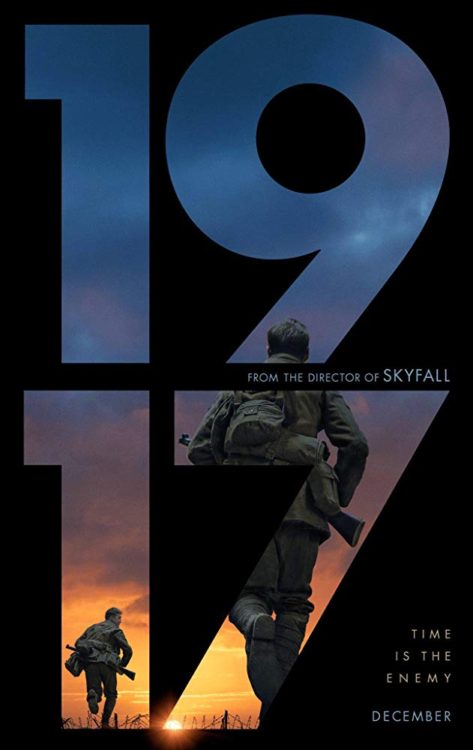Presented in one unbroken shot, 1917 follows two young soldiers as they embark on an impossible mission to warn a battalion of an impending ambush.
One-sentence review: 1917 is not only a technical feat, it's also an anxiety-inducing war thriller that manages to differentiate itself from anything that's come before it.

There's a scene in 1917 where Lance Corporal Scofield (George MacKay giving an Oscar-worth performance), after encountering yet another brush with death, sinks to his knees and cries. I wanted to do the same thing multiple times while watching this movie. The greatest war movies should make it feel like you just went through battle — 1917 makes you feel like you went through an entire tour.
Set during the height of the First World War, 1917 follows two young British soldiers — Schofield and Blake (Dean-Charles Chapman) — who are sent on a seemingly impossible mission to cross enemy territory and deliver a warning of an impending ambush in the coming day. To add to the stakes, Blake's older brother is part of the battalion in danger.

A lot of the buzz around 1917 comes from the decision to present it as one continuous shot — like Best Picture winner Birdman. Other recent Oscar movies have presented long takes like La La Land and Gravity, which is probably the more apt comparison to this movie. Without any cuts, there isn't anything to break the tension. It almost has more in common with a horror movie than it does a war movie. It's overwhelming.
And while it can sometimes come off as a gimmick, 1917 is largely successful in the same way that Children of Men's long takes are successful. Director Sam Mendes — who co-wrote the script with Krysty Wilson-Cairns — uses the technique to build suspense and anchor you in the moment with the characters. There's rarely a shot, if any, where you're not looking at a character or seeing something from their perspective.
It's especially effective as Blake and Scofield navigate the endless trenches — both on their side and the Germans. As their environment changes, from the trenches to the open countryside to a deserted village, so do the challenges involved in capturing the action. The sheer impressiveness of the feat is enough to keep you engaged. The production design by Dennis Gassner is almost unbelievable as we trek through what feels like miles of endless war zone.
Natural comparisons will be made to Christopher Nolan's Dunkirk. And while they are similar in that they are action-forward war movies, 1917 isn't as interested in the story as it is the human condition. What does it feel like to feel untethered from the world? From who you are? From time? There are small moments that point to this. In one, a character, after narrowly escaping death in a mine shaft, pulls a tin out of his pocket, looks at it for a moment, and then puts it back. Eventually we'll see what's in the tin, but what's more important is the character trying to ground himself in something “real.”
Mendes plays with time in subtle ways that are as beautiful as they are disorienting — that's where 1917 really soars. It's almost reminiscent of French impressionistic films. Coupled with legend Roger Deakins' dreamy cinematography — he's on track to win his second Oscar — and Thomas Newman's emotional orchestral score, Mendes has created the technical achievement of the year.
As I was thinking about how to wrap up this review, one question kept gnawing at me: why does 1917 matter? We've seen endless carbon copies of this same story, so why pay attention to this one? Yes, it's a technical achievement and that should be reason enough. However, I think it's truly a gamechanger. It proves that there isn't one way to tell a story and that the boundaries of filmmaking are yet to be met.
Hey, I'm Karl, founder and film critic at Smash Cut. I started Smash Cut in 2014 to share my love of movies and give a perspective I haven't yet seen represented. I'm also an editor at The New York Times, a Rotten Tomatoes-approved critic, and a member of the Online Film Critics Society.
Comments are closed.